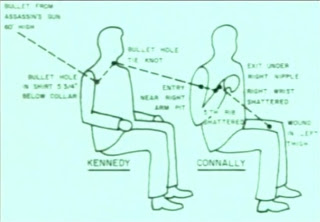This question assumes the mindset that IT is solely a cost center. However, if you start viewing IT as the core infrastructure that drives profits, enhances productivity and improves efficiency, then IT becomes even more important during a recession.
Unfortunately too many organizations are locked into the mindset that IT is a necessary evil. This is largely because of sour past relationships with IT consultants or an IT staff that treats the business network like a personal playground. I have worked in environments where the IT staff routinely eats up massive chunks of bandwidth and network resources because they are battling it out on World of Warcraft or some other video game. The hardest part of my job is converting C-level executives to a positive opinion about information technology. Don't get me wrong, I have yet to meet the executive that willingly parts with his or her Blackberry or laptop, but those are viewed as tools for personal productivity not as part of an overall infrastructure.
But getting them to buy into knowledge management, business intelligence, customer relationship management and a whole host of other systems becomes increasingly difficult because of past experience. They all remember being bitten by past salesmen who over-promised and under-delivered.
 The problem is that most C-suite executives seem to be looking for a "magic bullet" that will solve every problem. I don't blame them; I blame the ever-popular management books. Many of which don't take into account the reality that most medium to large businesses started as a small-business which then grew over time. As the company grew, new processes are adopted organically. These processes are developed by harried workers that need to develop a quick solution without knowledge or understanding of the larger issues involved. How often does the order entry clerk know how his work effects what happens in the warehouse?
The problem is that most C-suite executives seem to be looking for a "magic bullet" that will solve every problem. I don't blame them; I blame the ever-popular management books. Many of which don't take into account the reality that most medium to large businesses started as a small-business which then grew over time. As the company grew, new processes are adopted organically. These processes are developed by harried workers that need to develop a quick solution without knowledge or understanding of the larger issues involved. How often does the order entry clerk know how his work effects what happens in the warehouse?I am sorry to say but there are no magic bullets. There is no "one-size-fits-all" solution. Management book authors come up with these great systems that sound fantastic on paper but are not practical in every situation that confronts you. The problem is when executives become fanatics for a single system and will not budge away from it.
Flexibility is the key to success. No two businesses operate the same way. To best advance the cause of your company and to further business goals, you must work within the existing process sets, company practices, policies and corporate culture to positively effect change. This is not to say there isn't room for improvements, but it is likely that your business faces challenges that are specific to how you do business, and that these challenges are not address by your management books.
I think the real goal of good IT is to effect positive change within the organization while working with existing conditions.
Check out Endre's profile on Linked In: http://www.linkedin.com/pub/1/aa4/3a
Check out my profile too: http://www.linkedin.com/in/louisrosas
-------------------------------------------------------------------------------------
SEO Section: Business Technology Expert
-------------------------------------------------------------------------------------
No comments:
Post a Comment